Category: Uncategorized
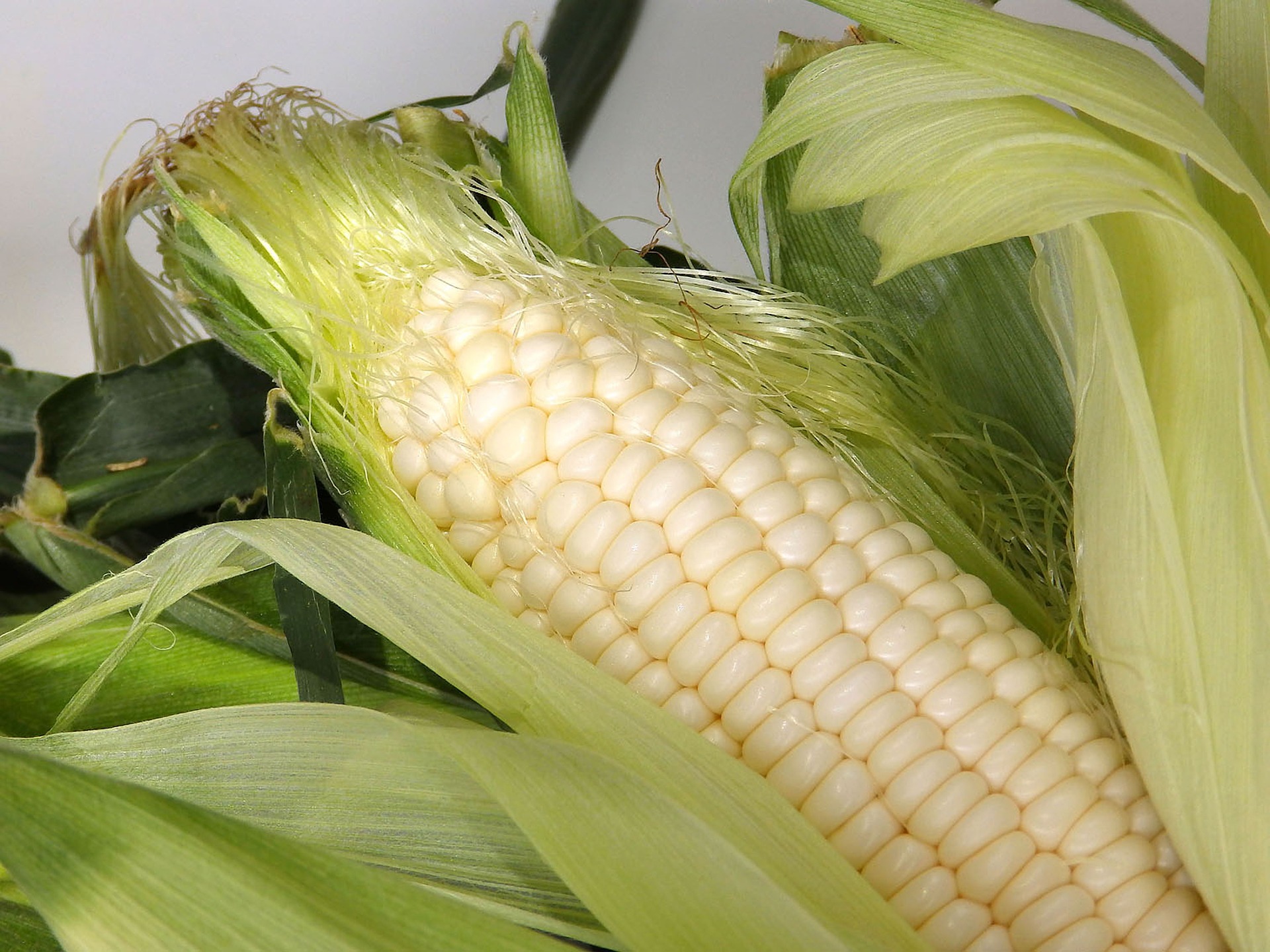
QualiBasic Seed Company – Bridging poor seeds quality gap in Africa to improve productivity
QualiBasic Seed Company is a supplier of foundation seed for maize, we endeavor to supply foundation seed of the highest quality, priced according to the value addition to the client’s business but representing a level of affordability that enhances the availability of certified seed to farmers.
We solve problems and mitigate risk for our clients helping them manage the inherent risk of producing foundation seed that significantly improves the output of their certified seed.
We ensure that our clients will not only reliably meet their certified seed requirement, but also guarantee improved quality and productivity by supplying foundation seed of the highest quality possible.
For more information visit our website: https://qualibasicseed.com/
Contact us:
Kenya – National East Gate road, Nairobi, Kenya
Contact Number :+254 733 631118 / +254 723 977793
Zambia – Chipwenupwenu road, off Kafue, Lusaka, Zambia
Contact Number +260960748307 – Zambia
Email address:Info@Qualibasicseed.com

Qualibasic Seeds: Improved seed quality leads to increased productivity
Food security in Africa demands the availability of high-quality seeds to achieve high crop productivity. However, this has remained a pipe-dream within Sub-Saharan Africa (SSA) despite the region having huge potential to maximise its agricultural productivity.
As a result, farmers experience a shortage of high-quality seeds during planting season, increasing the temptation of recycling saved seeds, or buying fake varieties from unscrupulous traders.
The re-use of low-yielding farm saved seeds makes it impossible for smallholder farmers to improve their yield. This scenario has led to farmers in SSA suffering lower rates of production, consequently, impacting on food security and income generation at household levels.
The Access to Seeds Index 2019 report revealed that less than 10 percent of the world’s smallholder farmers have access to the improved, quality seeds that can halt hunger and tolerate the impacts of climate change.
The report further notes that enhancing smallholder access to a wide range of affordable quality seed of high performance, as well as locally suited improved crop varieties, is critical if farmers are to improve their productivity and reduce their vulnerability in the face of the challenges that inhibit increased agricultural productivity in Sub-Saharan Africa, including new pests and diseases, climate change and natural resource limitations.
“Smallholder farmers often struggle to access cutting-edge seed varieties, partly because seed companies in the region are hindered by market inefficiencies and are themselves unable to access new varieties and technologies,” the report noted.
Though an increasing number of seed companies have been launched on the continent over the last decade, not all have been able to invest in breeding new varieties locally for the benefit of farmers, but they continue to take up and market varieties coming out of the general breeding channels.
Many players in the seed value chain have identified lack of quality seeds as one of the most pressing issues hindering productivity increase in Africa.

Access to foundation seed is the key
Improving productivity all starts with the availability of parent or foundation seed to local seed companies so that they can produce certified seed to be sold to farmers. Access to foundation seeds in a country will help the seed companies to meet their sales targets, and to ensure that the output of both public and private breeding programmes gets to the farmer on his farm. This is the key to address the issue of poor seed quality.
To benefit from these opportunities, QualiBasic Seed Company (QBS), a seed company established by the African Agricultural Technology Foundation (AATF), is filling a major gap that will now allow African farmers access to new, improved crop varieties produced by national breeding programmes; as well as access to parent or foundation seed used by local seed companies to produce ample, affordable supplies of certified seed.
QBS serves as a bridge between the innovations produced by crop breeders working with national and international research programmes and the local seed companies that make them available to African farmers.
The company supplies seed companies with high-quality foundation seed to ensure the product sold to African farmers retains all the desirable traits, like disease and drought resistance and higher yields, that the breeders have worked hard to achieve.
QBS supplies high quality foundation seed with high genetic integrity, phyto-sanitary security, and industry-leading seed quality standards to seed companies, as well as the technical support to help seed companies with production and marketing of their certified seed.
When certified seed is produced from quality foundation seed, it means that the end product that gets to farmers will deliver the intended genetic gain – meaning the farmer will reap the full value intended by the breeder with improved yield and quality, which will in turn contribute significantly to increased agricultural productivity and food security.
For more information please contact us on (+254-73-363-1118, +254-72-397-7793 – Kenya), (+260-96-074-8307 – Zambia) or e-mail Info@Qualibasicseed.com or contact Sandra Alai on +254-78-555-1529 or Sandra@Qualibasicseed.com.
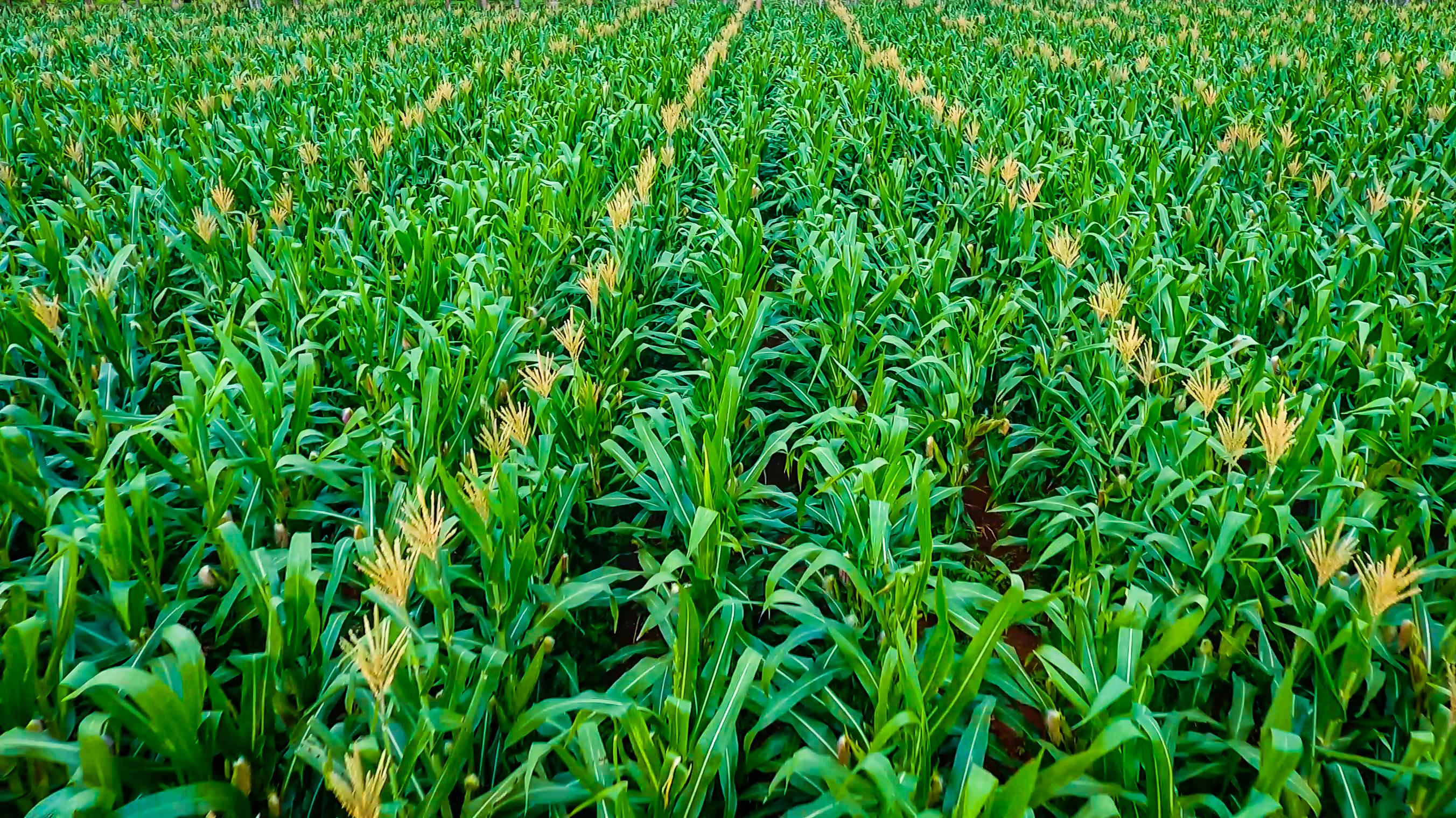
Good news for seed companies and farmers in Africa: QBS offers a sustainable supply of foundation seed
The seed industry in Africa is one of the pillars upon which improved agricultural productivity for the continent must rest in order for farmers to increase production. However, smallholder farmers across Sub-Saharan Africa (SSA) suffer low crop yields and sometimes crop failure due to the use of poor-quality seed or the unavailability of better performing seed.
Poor seed quality is a major bottleneck facing seed companies and farmers in the SSA region. This is often caused by mishaps during the seed production process, leading to difficulties with production and maintenance of quality foundation seed for some independent seed companies that service Africa’s smallholder markets, resulting in a low and inconsistent supply.
To alleviate this problem and to help address challenges associated with production of foundation seed, QualiBasic Seed Company (QBS) was formed to offer a commercially sustainable foundation seed supply solution to seed companies and farmers in Africa.
QBS supports seed companies in SSA to ensure the quality of certified seed by operating a centralised system that manages foundation seed production, quality control and storage, in a highly effective and efficient way.
According to the QBS Managing Director Andy Watt, QBS works with different seed companies to plan production and ensure delivery of high-quality foundation seed to satisfy the needs of their certified seed production. “As a company specialising in production of foundation seed for independent seed companies, we work with seed companies to help them realise their goal of producing quality certified seed by taking the burden of foundation seed production from them.”
He points out that QBS works to fill the foundation seed production gap by supplying high quality foundation seed with high genetic integrity, phytosanitary security and industry-leading seed quality standards to seed companies, including providing technical support to help seed companies with production and marketing of their certified seed.
One such seed company is Uganda’s BRAC Social Business Enterprises, a social venture launched in 2006 to contribute to poverty reduction and to support women and the youth by creating sustainable value chains for farmers.
According to the Head of BRAC Social Business Enterprises, Dr Ziaur Rahman, they have been working with QBS to produce high-quality hybrid seed to ensure maximum yield for Ugandan farmers.
He notes that the fundamental requirement of a growth-oriented hybrid seed producer and marketing company like BRAC Seed, is gaining the trust of farmers who are directly or indirectly involved in field production activities and observing results of quality yields.
“To attain quality yields, we have to ensure that farmers are supplied with quality hybrid seeds, which basically come from quality foundation seeds. QBS is one of the leading seed companies that is exclusively producing high quality foundation seeds for African seed companies,” he points out.
Before learning about the services offered by QBS, Dr Ziaur says one of the challenges his organisation faced was unavailability of reliable foundation seeds and delayed access to technical expertise which in turn slowed down the supply of foundation seed for commercial hybrid seed production programmes.
“QBS always responds in time when we need foundation seeds to support our certified seed production programme,” he says, adding that with the foundation seeds from QBS, BRAC Seed has introduced a new drought tolerant hybrid maize, called Champion F1, in the Ugandan seed market.
Like BRAC Seed company, QBS and its service is not new to other seed companies across the region. According to Sylvia Horemans, Chief Executive Officer of Kamano Seed Company, the formation of QBS brought relief to most seed companies in Zambia.
“They have taken up a lot of work from seed companies by growing our foundation seed. All we have to do now, is to request to QBS to produce foundation seed so that we only focus on production of certified seed,” explains Sylvia.
She notes that QBS has helped her organisation, a company that produces improved seeds and markets them to smallholder farmers, to improve its business because of provision of technical knowhow that allows seed companies like hers to focus on other production operations as the burden of foundation seed production is taken care of by QBS.
“So far, QBS has been producing foundation maize for companies, but we hope they can extend their services to other seed crops including soya beans, sorghum, millet, groundnuts, cowpeas and beans. This range of crops has a lot of recycled seed which has caused the yields to be very low,” she states.
Across the border in Malawi, Demeter Agriculture Ltd is enjoying the fruits of its working relationship with QBS. The organisation’s General Manager, Prashant Khatri, says that before they used the services of QBS, they did not have the breeding material in the quality they wanted, but now this situation has changed.
“They are able to supply the quantity and quality on time in all seasons when we need foundation seeds to support our certified seeds production programme,” says Prashant.
As result, Prashant says that his organisation is now able to compete favourably in the market as the performance of hybrid is satisfactory, and adds value to their operations.
It is estimated that 80 percent of seed companies struggle to produce a consistent supply of quality foundation seed due to technical, infrastructural, and financial challenges.
As QBS continues to change lives of smallholder farmers through helping seed companies to gain access to high quality foundation seed, the seed companies that spoke to ProAgri magazine called on QBS to continue supporting their operations to ensure a win-win situation for all parties for improved productivity for smallholder farmers in Africa.
When certified seed is produced from quality foundation seed, it means that the end product that gets to farmers will deliver the intended genetic gain – meaning the farmer will reap the full value intended by the breeder with improved yield and quality, which will in turn contribute significantly to increased agricultural productivity.
by George Achia
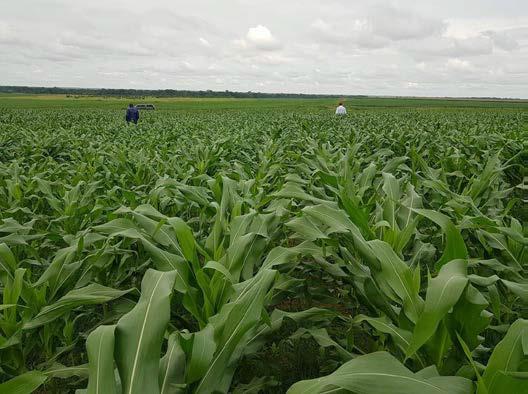
Quality certified seed is critical in improving agricultural productivity in Africa
To enhance agricultural productivity, improve food security and raise domestic economic activity among smallholder farmers within the continent that is dependent on agriculture for economic mainstay, there is need to use improved, quality certified seeds to increase yields for farmers.
Quality certified seed is critical to enable farmers to raise agricultural productivity, increase income and reduce poverty. However, farmers continue to suffer low crop yields and even frequent crop failure due to the use of poor-quality seed or reduced availa-bility of better performing seed.
A critical component to the realisation of quality certified seed is foundation seed or parent seed, also known as early generation seed. Still, many of the independent seed companies that service Africa’s smallholder markets have difficulties with production and maintenance of quality foundation seed, resulting in a low and inconsistent supply, which in turn impacts the availability of certified seed for sale to farmers. It is estimated that 80 percent of the small and medium sized seed companies, who can reach more than 60 percent of smallholder farmers in SSA, struggle to produce a consistent supply of quality foundation seed due to technical, infrastructural and financial challenges.
To assist seed companies addressing the challenge of accessing essential parent seed to ensure consistency in production of foundation seed, QualiBasic Seed Company (QBS) is scaling up its operations in Africa to offer a commercially sustainable foundation seed supply solution to seed companies and farmers in Africa. QBS supports seed companies in SSA to ensure the quality of certified seed by operating a centralised system that manages foundation seed production, quality control and storage, in a highly effective and efficient way.

Luiz Silva, Production Consultant, and Davison Silungwe, Production and Supply Manager, are very satisfied with the progress of their maize.
Recently, QBS commissioned a seed processing plant in Zambia where the company has invested in the latest processing equipment from PETKUS, which allows each grain of seed to be cleaned, separated into sizes, and any contamination by foreign bodies removed using an array of cleaners, sizers and gravity separation. Once processed, the seed can then either go into cold storage or be treated and bagged for sale. This use of gentle, high precision equipment is another critical step in producing high quality seed.
According to the QBS managing director Andy Watt, it is paramount for seed producers to observe high standards in seed production. “As a company specialised in production of foundation seed for independent seed companies, we work with seed companies to help them realise their goal of producing quality certified seed by taking off the burden of foundation seed production from them,” said Watt during the commissioning of the plant in Zambia. He pointed out that QBS is committed to producing and preserving seed quality, giving significant attention to details in the field production stages.
To ensure the quality of the seed is preserved, the production facility allows for selection of seed from any stage in the process and puts it into cold storage where the seed can be kept in the very best condition for extended periods at 10 degrees centigrade and 50 percent humidity – these cool and dry conditions are key to preserving quality.

Davison Silungwe is all smiles when he admires the results of QBS’ good quality seed.
“Once we have received an order, we put the seed through our latest rotary batch treater to apply appropriate seed treatments to assure the best germination and early season growth of the plant and then finally we bag and label the seed for sale in multiples of 1 000 kernels, reflecting the high quality and indeed high value of QBS foundation seed,” explains Watt.
Beginning this year, QBS will include a polymer coating in the seed treatment process to ensure the seed flows and transports well, the seed treatment remains on the seed, improving field performance as well as reducing exposure of operators to any dust and chemicals.
The company will continue to make foundation seed production more cost effective and efficient for seed companies so that they can improve their production cycles by being able to access high quality foundation seed in a timely manner.
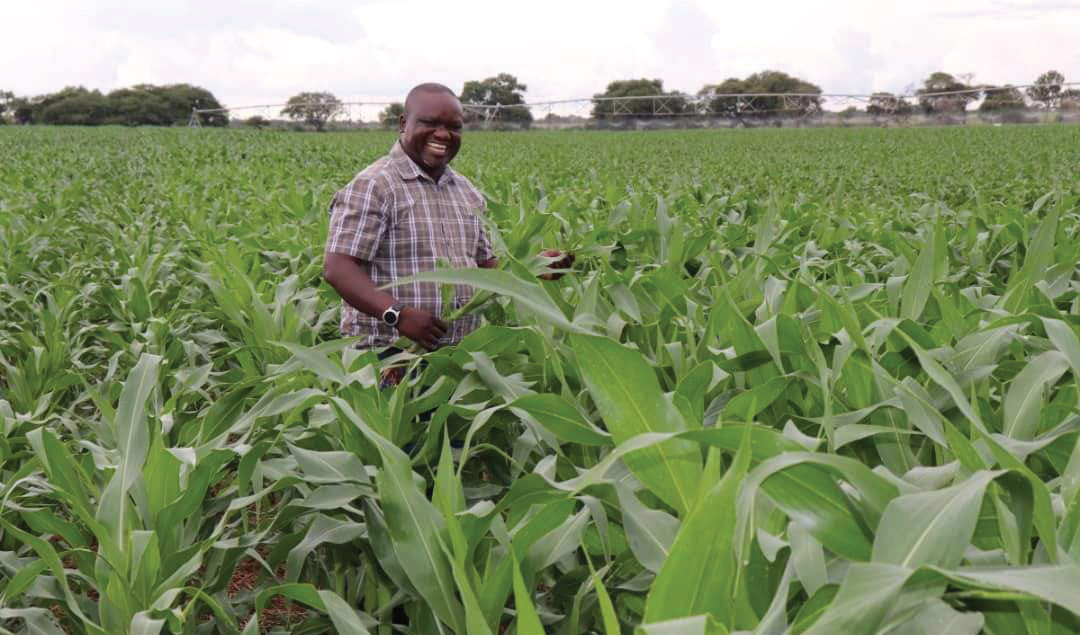
Qualibasic Seed take care to provide quality seed
There’s a special allure to foundation seeds. They are as pure as you can get with all the original traits of the earliest possible genetics of a particular plant species. There is a strong market for these “cultivars” and Qualibasic Seed (QBS) is well positioned in Zambia to meet that demand. Last month we have met this Kenyan based company with branches in Zambia and South Africa. This month we take a closer look at how they conduct production and business. QBS is committed to producing and preserving original seed quality. Significant attention to detail is taken in the field production stages. Breeder seed is taken through the pre-foundation growing blocks where genetic purity is assessed visually and through laboratory analysis and once their seed specialists are satisfied that it meets their quality standards, the seed is allowed to progress to field scale production of commercial volumes of foundation seed.
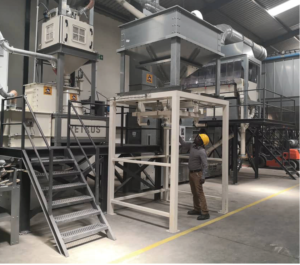

The QBS commitment to quality doesn’t just stop in the field. In Zambia they have invested in the latest processing equipment from PETKUS, where each grain of seed is cleaned, separated into sizes, any contamination by foreign bodies removed using an array of cleaners, sizers and gravity separation. Once processed, the seed can then either go into cold storage or be treated and bagged for sale. This use of gentle, high precision equipment is another critical step in producing high quality seed. Their production facility allows them to take seed from any stage in the process and put it into cold storage. Seed can be kept in the absolute best condition for extended periods at 10 degrees centigrade and 50 percent humidity these cool and dry conditions are key
to preserving quality. Once QBS receives an order, they put the seed through their latest rotary batch treater for appropriate seed treatments to assure the best germination and early-season growth of the plant. Finally, they bag and label the seed for sale in multiples of 1 000 kernels, reflecting the high quality and indeed high value of QBS foundation seed.
In 2020 they started to include a polymer coating in their seed treatment process to ensure the seed flows and transports well, and that the seed treatment remains on the seed. This process will improve field performance as well as reduce exposure of the operators to dust and chemicals. This helps their seed company customers to realise the full genetic potential of the parent stock in the production of their certifi ed seed, while helping them carry forward yield and quality gains in their own production, and ultimately to their farmer customers. Attention to detail, rigid production
processes, precision growing and processing, all supervised by industry leading production staff , result in the availability of the finest parent seed for Africa from QBS.
by Davison Silungwe